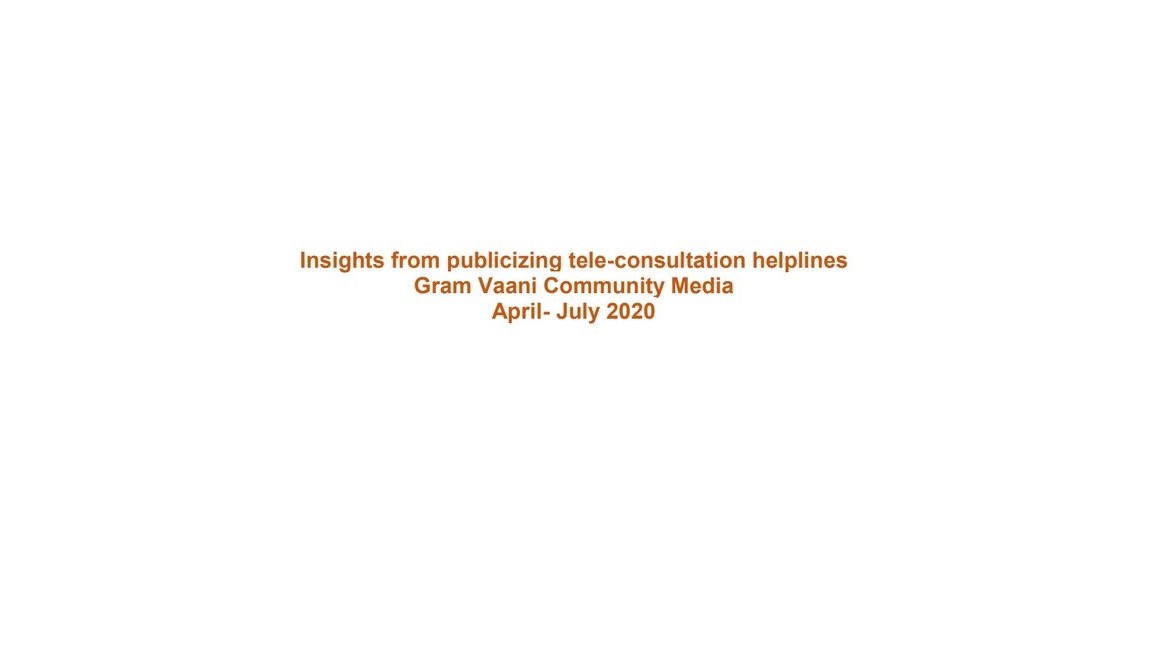During the lockdown when regular health services were severely disrupted, we publicized several tele-consultation helplines run by our partners. These included a helpline to seek advise on general medical ailments (non-COVID-19), a helpline to discuss antenatal and postnatal care, and a helpline on mental health (non-medical) issues. We got a surprisingly low engagement from our users and we spoke to a few of them to understand the reasons. People cited a lack of trust in talking to doctors remotely. The novelty was also a deterrent and people did not understand the concept. Their motivation to seek advice was also low, they were mostly concerned with more serious ailments that might require hospitalization. Read more in our short report. This experience clearly reinforced something we learned the hard way a long time back, that there are no shortcuts in development — greater engagement with the users, explaining new concepts to them, and supporting them to take risks, is what works. A more successful intervention on mental health in Gujarat was executed in a community based manner, by the Center for Mental Health Law and Policy. Their explanation is: “The strength of this model lies in its use of social capital”.



